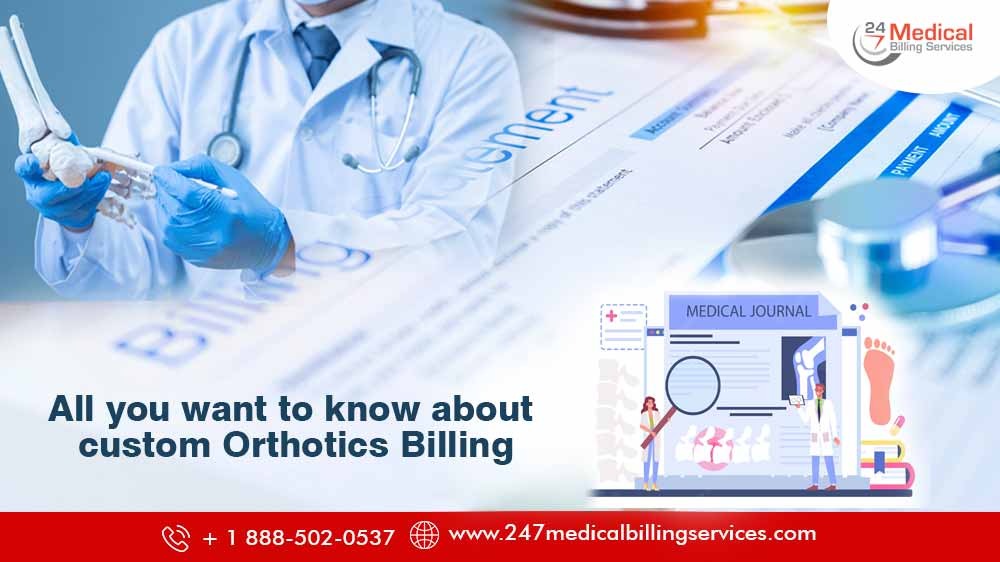
All You Want to Know About Custom Orthotics Billing
Most providers involved in the field of orthotics and prosthetics are concerned about billing for orthoses. This is especially true for O&P providers because the burden of getting paid for services rendered frequently falls squarely on their shoulders. Such concerns would not have existed in a cash-only practice. But that is not the case. A modern practice must recoup costs from the patient's insurance provider. This includes preparing and submitting a formal claim for reimbursement. That’s why it is crucial to know everything about custom orthotics billing. Here is a glimpse of the orthotics and prosthetics providers:
Custom Foot Orthotics Insurance Coverage:
Custom foot orthotics insurance coverage varies by the insurance company and individual policy. Always check with the patient's insurance company to see if foot orthotics are a covered benefit. Often, you will discover that they are not covered and must be paid for in cash after a lengthy verification process. If you have out-of-network patients, the best idea is to ask them for cash payments with a letter of medical necessity and HCFA to file the claim. Flexible spending accounts and Health Savings Accounts are two other options that can be used. If the patient is paying cash, inform them of the services that are included with their orthotic purchase (fitting, follow-up visits, training, adjusting, etc.).
CPT CODE #97760 - Examination, Designing, Casting, and Education
HCPCS CODE L3000 - Foot, removable insert, molded to patient model, 'UCB' type.
(MODIFIER – Left and Right Foot will be billed separately i.e., L3000RT for the right foot, L3000LT for the left foot)
HCPCS CODE L3030 - Foot, removable insert, formed to patient foot, each
(MODIFIER – Left and Right Foot will be billed separately i.e., L3030RT for the right foot, L3030LT for the left foot)
CPT CODE #97762 - Check-in - Dispensing and Fitting
The patient's health plan benefit language and guidelines will determine whether these codes are covered (as opposed to a low-level E/M service or no coverage at all).
Obviously, if custom foot orthotics are not covered items under a plan, these codes are ineffective for evaluating those non-covered orthoses. Custom foot orthotics will not be covered by Medicare.
Custom Orthotics Billing Challenges:
Drafting a 'perfect' claim - one that is complete, accurate, and will not be rejected by the insurance payer - necessitates a high level of precision and precise knowledge of billing norms and procedures. Understanding coding caveats is the most important of these. It is critical for practice, for example, to be able to differentiate between CPTs and L codes, or to understand what Insurance Company A will pay for that Insurance Company B will not.
There are also other factors to consider. Right-foot and left-foot orthotics must be coded and billed on separate claim form lines with the appropriate code and the appropriate "-RT" or "-LT" modifiers. It's a good idea to double-check with the provider if the codes provided aren't adequate for accurately describing the orthotic services done for the patient. It is risky to assume that a catch-all or unlisted code (such as CPT 29799—unlisted casting code) can be used discriminately, especially when a more appropriate code exists.
Expert Assistance Is Required!
Coding errors can result in lost earnings and revenue and if they occur too frequently, the impact on profitability can be negative. Of course, providers are aware of this and work hard to outsource experienced custom orthotics billers and coders in order to reduce such losses. However, expertise comes at a cost, and it's often a high one. A growing number of Orthotics & Prosthetics practices are outsourcing their billing operations to specialized, third-party service providers in order to reduce staff costs while achieving the best results in billing & coding.
Strategic outsourcing of key custom orthotics billing activities to specialized, offshore billing experts can work wonders in drastically bringing down operational costs while allowing providers to enjoy top quality results minus all the usual hassles. The most significant benefit of using a dedicated custom orthotics billing company is that providers can instantly access a large pool of skilled billing personnel at a much lower cost than regular, in-house staff.
Along with significant cost savings, having dedicated, professional assistance improves the entire revenue cycle, particularly the rate of collections. Denial rates have also been observed to fall sharply, with more bills being passed than previously. This is due to fewer coding errors or other factors, which is a natural advantage when you have dedicated and experienced personnel on your team.

.png)